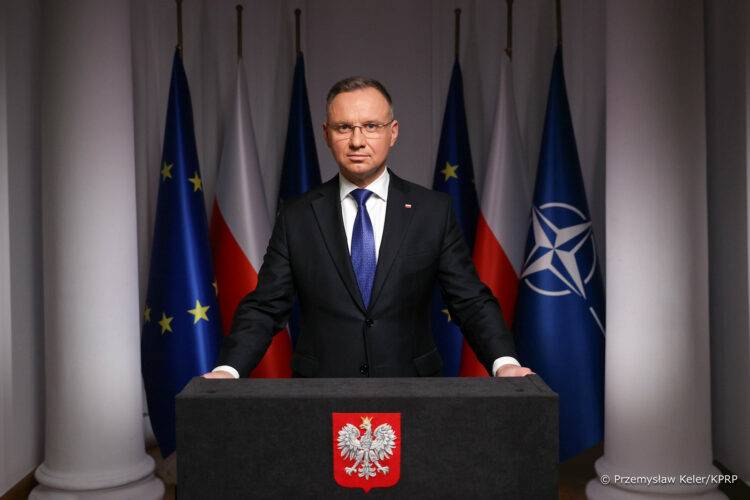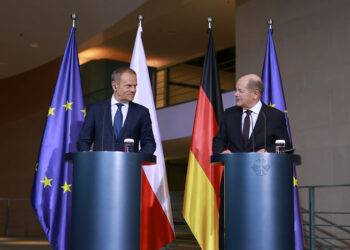Polish President Andrzej Duda announced that he will not sign the bill that proposes partial decriminalization and depenalization of abortion up to the twelfth week of pregnancy. This decision was disclosed during an interview with TVN24 while the president was in Washington.
Duda’s statement comes as the Polish Sejm (parliament) prepares to deliberate on the bill this week. Currently, Poland’s abortion law, one of the strictest in Europe, allows the procedure only if the pregnancy poses a threat to the life or health of the pregnant woman or if there is a justified suspicion that the pregnancy resulted from a criminal act.
When asked if he would endorse the new bill that addresses the decriminalization of abortion and assistance in terminating pregnancies up to 12 weeks, Duda responded with a firm “no.” However, he assured that pregnant women would not face any penalties for undergoing an abortion, emphasizing that “the woman is in a special situation.” He added that penalizing individuals who illegally participate in the process is a “different matter,” reiterating his belief that abortion equates to “depriving people of life.”
The proposed bill aims to exclude criminality for terminating a pregnancy up to 12 weeks with the woman’s consent. It also seeks to exempt from punishment those terminating a pregnancy with the woman’s consent in cases of severe, irreversible fetal impairment or incurable illness threatening the fetus’s life.
In late June, the Special Committee of the Sejm for reviewing abortion-related bills endorsed the first proposal from the Left party, which amends the Penal Code. The proposal includes amendments from Left party MP Anna Maria Żukowska, aiming to eliminate imprisonment for performing or aiding in abortion with the woman’s consent.
On Tuesday, the committee reviewed three additional bills on abortion rights: the Left’s bill on safe abortion, the Civic Coalition’s bill on conscious parenthood, and the Third Way’s amendment to the family planning, human fetus protection, and conditions for legal termination act.
Poland’s abortion laws, enforced since 1993, were significantly altered following the Constitutional Tribunal’s ruling in October 2020. Before the ruling, the family planning act, known as the “abortion compromise,” permitted abortion in cases of severe and irreversible fetal impairment or an incurable illness threatening the fetus’s life. The Tribunal deemed this provision unconstitutional, sparking nationwide protests. This provision lost its effect upon the publication of the Tribunal’s decision in January 2021.
The president was also questioned about his stance on a preliminary bill on civil partnerships proposed by Equality Minister Katarzyna Kotula. Duda noted that he needs to review the bill’s details. On Monday, the government’s legislative work schedule included information about the civil partnership bill and the accompanying implementation bill. The expected date for the Council of Ministers to adopt these proposals is the fourth quarter of this year.
The civil partnership bill allows two consenting adults, regardless of gender, to form a registered partnership. It outlines the procedures for establishing and dissolving a partnership, the rights and obligations of partners, and their financial relationships. The implementation bill includes amendments to current laws to grant registered partners rights in healthcare, social security, inheritance, and taxation.
Poland remains one of five EU countries that do not allow same-sex couples to formalize their unions, alongside Bulgaria, Romania, Lithuania, and Slovakia.
Background
The debate on abortion in Poland has long been a contentious issue, deeply influenced by the country’s strong Catholic heritage. The 2020 Constitutional Tribunal ruling that tightened abortion laws marked a significant shift from the previously established “abortion compromise.” This decision mobilized massive protests across the country, reflecting deep societal divisions on the issue.
The current legislative efforts, both on abortion and civil partnerships, indicate ongoing tensions between progressive factions seeking to liberalize these areas and conservative forces aiming to maintain or tighten existing restrictions. As these debates continue, they highlight the broader struggles within Polish society over issues of personal freedom, human rights, and the role of religious and moral values in shaping national laws.


















